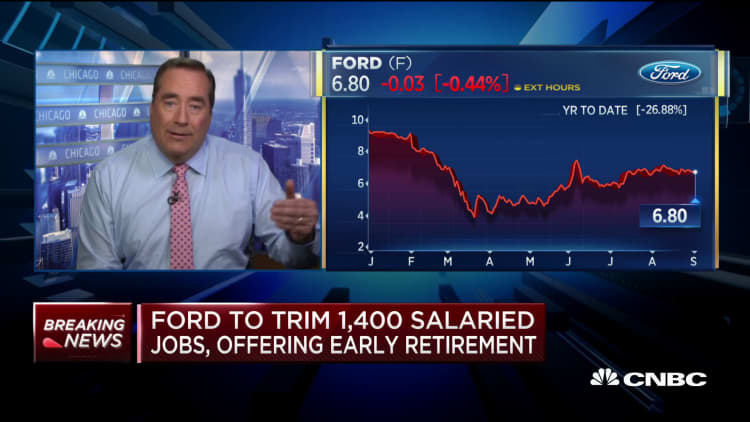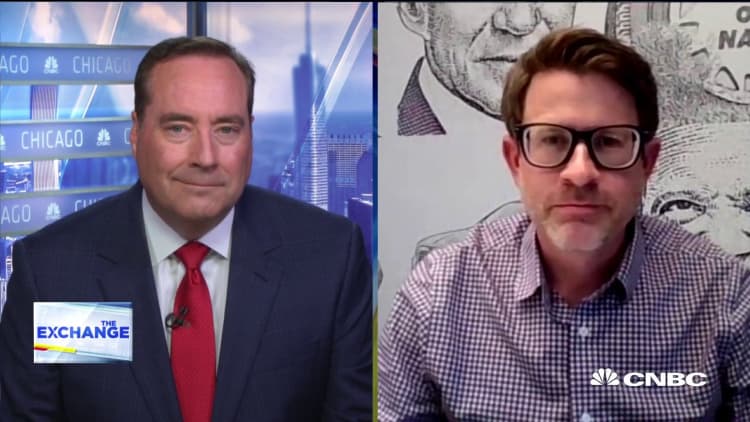
Ford Motor told employees Wednesday that it plans to trim its white-collar workforce with buyouts for some salaried workers, according to an internal memo seen by CNBC.
The company is hoping to voluntarily eliminate at least 1,400 jobs, spokesman T.R. Reid said. The company told employees it's targeting salaried employees who are eligible for retirement at the end of the year, according to the memo.
People who accept the buyout would leave the company by the end of the year. Those who don't accept the buyout could face potential layoffs, the memo said. Employees have until Oct. 23 to accept the buyout.
"The program is part of our underway and ongoing process to increase Ford's global fitness and effectiveness, which includes reprioritizing products and services and staffing the company accordingly, so we're more streamlined and successful," Reid said.
The buyouts would help Ford cut staff in underperforming areas of the business while allowing the company to invest in new technologies and ventures, he said.
Ford had a worldwide workforce of 190,000 people at the end of 2019 – down 9,000 from the previous year when the reduced salaried positions by 7,000 worldwide. The company has about 36,000 salaried employees in the U.S.
Ford's workforce reduction comes as the company tries to implement an $11 billion restructuring plan that's expected to continue for several years. The Detroit automakers have been unable to impress Wall Street, even after Ford and Fiat Chrysler each significantly beat second-quarter earnings expectations.
The job cuts come as automakers reel from costs related to the coronavirus pandemic that left factories and showrooms across the country closed for weeks. Outgoing Ford CEO Jim Hackett told investors on an earning's call in April that the company "must not only weather the crisis," but "emerge from it ready to build a brighter future."
Ford Chief Operating Officer Jim Farley, who will succeed Hackett as CEO in October, has previously said he plans to push the company toward growth businesses such as connectivity and all-electric vehicles to better compete against Tesla. Farley said that fixing and accelerating Ford's North American operations to achieve 10% profit margins remains another priority.
Ford's second-quarter earnings showed the company was profitable, reported fewer operational losses than expected and had already started repaying credit lines it tapped earlier this year to weather the pandemic.




